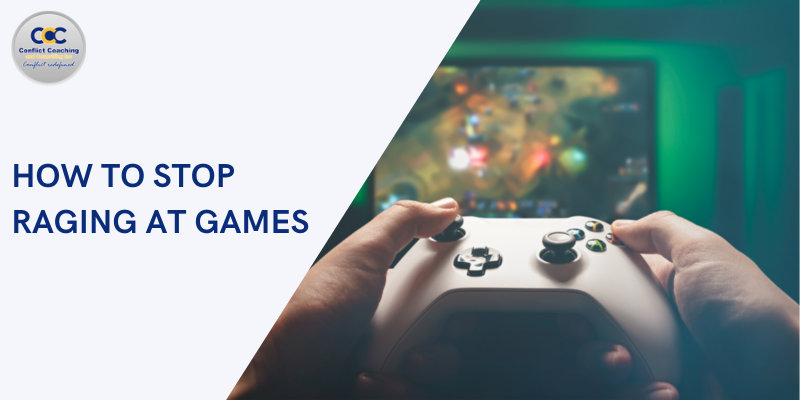
25 Best Hobbies To Release Anger
Life can be a rollercoaster of emotions. One of such intense emotions is anger! It’s a natural feeling, but what’s essential is how we deal with it. Instead of bottling or letting it explode, there’s a healthier way to release the emotions – through hobbies.
In this fast-paced world, finding the best hobbies to release anger can be a game-changer. These activities not only give us an outlet for our frustrations but also bring joy and relaxation. It’s like hitting the reset button for your mind.
From pounding on a drum kit to peacefully tending to a garden, there’s a hobby for everyone. We’ll be your guide to discovering the best ones that suit your style.
So, if you’ve ever wondered how to channel your anger into something positive, stick around. We’re about to explore the best hobbies to release anger and embrace a more balanced and tranquil you. Let’s dive in and find your perfect anger management hobby!
25 Hobbies That Can Help You Release Your Anger
Whether you prefer physical activities, creative expressions, or mindfulness, there’s a hobby for everyone. Discover how these hobbies can help you manage and release your anger constructively.
1. Engage in Mindful Activities
Mindfulness practices are an effective means of managing and releasing anger. These activities are about being present in the moment, acknowledging your emotions without judgment, and learning to respond rather than react impulsively.
Engaging in mindful activities can help you control your anger and transform it into a more constructive energy.
Whether through deep breathing exercises, meditation, or mindful walking, these practices can bring calm and emotional balance. By focusing on the here and now, you can detach from the sources of anger and better understand your emotional responses.
The benefits of engaging in mindful activities extend beyond anger management. They can promote overall mental well-being, reduce stress, and enhance your ability to navigate life’s challenges with a clear and calm mind.
So, if you’re looking for a holistic approach to anger release, consider incorporating mindful activities into your daily routine.
2. Practice Yoga
Yoga is not just a physical exercise; it’s a holistic practice that integrates the mind, body, and spirit.
One of the lesser-known benefits of yoga is its one of the most effective anger management exercises. This ancient practice combines physical postures, breathing techniques, and meditation to foster emotional balance.
The physical aspect of yoga helps release tension and stress from the body, often precursors to anger. As you flow through various poses, you’ll discover improved flexibility, strength, and a sense of physical well-being.
The deep, controlled breathing in yoga also plays a crucial role in calming the nervous system and reducing feelings of anger and frustration.
By incorporating yoga into your routine, you can find a healthier and more balanced way to cope with anger. It not only helps you release anger but also fosters a sense of overall well-being that can have a positive impact on your life. Whether you’re a beginner or experienced, yoga offers a welcoming path to emotional growth and transformation.
3. Enjoy a Swim Session
Swimming is not just a great way to stay in shape; it’s also a highly effective hobby for releasing anger and stress. When you’re submerged in the water, the soothing and repetitive motion of swimming can work wonders for your mental state.
A swim session allows you to channel your anger into physical exertion, enabling you to release pent-up emotions.
Additionally, swimming promotes the release of endorphins, which are natural mood lifters. As a result, you can emerge from the pool feeling not only physically refreshed but also mentally rejuvenated.
Whether it’s in a serene pool or the open waters, the act of swimming can provide a sense of tranquility and emotional release that makes it an excellent choice for anger management.
4. Incorporate Weightlifting
Weightlifting may seem unconventional for anger release, but it is remarkably effective. Lifting weights allows you to harness your anger and convert it into physical strength. Lifting and exerting force can serve as a productive outlet for intense emotions.
Weightlifting demands focus and concentration. As you perform various exercises, you are encouraged to channel your anger into each repetition. It’s a controlled and structured way to release frustration, as opposed to impulsive outbursts that can be harmful.
In addition to the physical benefits, weightlifting releases endorphins, the body’s natural stress and pain relievers. This can leave you feeling more relaxed and content after a weightlifting session.
Ultimately, weightlifting can provide a sense of empowerment and control over your emotions. It’s a practical and structured way to release anger and stress while enhancing your physical health and self-confidence.
5. Opt for a Sprinting Session
Sprinting, a high-intensity form of running, is a powerful way to release anger and tension. When you sprint, your body engages in rapid bursts of energy, pushing you to your limits. This intense physical exertion can be an excellent outlet for pent-up frustration and anger.
One of the primary benefits of sprinting is the release of endorphins, which are natural mood enhancers. As you push yourself during a sprinting session, your body floods your system with these feel-good chemicals. This not only helps you feel more positive but also reduces the intensity of anger.
Sprinting requires your full attention and focus, making it a form of active meditation. This can help you temporarily disconnect from the sources of anger and regain emotional balance. Additionally, the deep, rhythmic breathing associated with sprinting can have a calming effect on the nervous system, further aiding anger management.
Regular sprinting sessions can contribute to a healthier and more controlled way of dealing with anger. It’s a dynamic hobby that not only improves physical fitness but also provides a constructive outlet for releasing and managing intense emotions.
6. Embark on a Jog
Jogging is a timeless and accessible hobby that can significantly aid in anger release and stress management. It doesn’t require any special equipment or memberships; you only need a good pair of running shoes and an open path. Whether you’re a seasoned runner or just starting, jogging can be a transformative way to cope with anger.
Jogging allows you to step outside, breathe in fresh air, and escape the pressures of daily life. This change of environment can be a crucial component in releasing anger.
Furthermore, jogging is a meditative activity. The endorphins released during a jog can elevate your mood and make you feel more in control of your emotions.
By making jogging a regular part of your routine, you can experience not only physical health benefits but also emotional well-being. It’s a simple yet powerful way to manage anger and find a sense of inner calm.
7. Take Your Dog for a Walk
Walking your dog isn’t just a favor to your furry companion; it’s also a fantastic way to release anger and stress. When you take your dog for a walk, you engage in physical activity while spending quality time with your pet, and this combination can do wonders for your emotional well-being.
Walking, particularly in natural settings like parks or trails, allows you to reconnect with the outside world.
Walking also encourages mindfulness. It enables you to be present in the moment, focusing on the rhythm of your steps and your dog’s interactions with the environment. This mindfulness practice can help you release anger and return to a state of emotional balance.
Moreover, walking your dog offers the benefits of companionship, reducing feelings of isolation or irritability. The unconditional love and enthusiasm your dog brings to the walk can lift your spirits and promote emotional well-being.
So, if you’re seeking a gentle yet effective way to manage anger, consider a daily walk with your canine friend.
8. Explore a Hiking Trail
For those seeking a deeper connection with nature and a more rigorous form of anger release, exploring a hiking trail can be an ideal choice. Hiking combines physical exertion with the therapeutic effects of nature, making it a holistic way to manage anger and stress.
Hiking allows you to disconnect from the urban hustle and bustle and immerse yourself in the serenity of natural surroundings.
The meditative and mindful aspects of hiking are also beneficial for anger management. It provides a space for self-reflection and introspection, allowing you to process your emotions and gain clarity on the sources of your anger..
Whether you opt for a short day hike or a more extended backpacking trip, hiking is a hobby that offers not only anger release but also a sense of adventure and connection with the natural world. It’s a perfect choice for those looking to embrace the healing power of nature while managing their anger.
9. Shoot Some Hoops with Basketball
Basketball is a dynamic and physically engaging sport that can be a fantastic outlet for releasing anger and stress. The fast-paced nature of the game can divert your attention from the sources of anger and provide a constructive way to let off steam.
The sport’s physical demands require endurance, agility, and quick decision-making, which can keep you engaged and in the moment. This active concentration can be therapeutic, helping you release negative emotions and find emotional balance.
Basketball also offers the benefit of aerobic exercise, releasing endorphins that enhance mood and reduce stress. The combination of physical activity, mental engagement, and social interaction makes basketball an excellent choice for those seeking an active and enjoyable way to cope with anger.
10. Attend a Boxing Gym for Punching Workouts
Sometimes, the best way to release anger is to punch something, and boxing provides a safe and controlled way. Attending a boxing gym and participating in punching workouts can be incredibly therapeutic, allowing you to let off steam and build emotional resilience.
Punching workouts in a controlled environment, guided by trained instructors, provides an excellent release for pent-up frustration.
In addition to the physical benefits, boxing promotes discipline and focus. Learning various techniques and combinations requires concentration, which can help you redirect your thoughts away from the sources of anger.
Furthermore, boxing workouts release endorphins, reducing stress and enhancing mood. Over time, practicing boxing can not only be a means of anger release but also a way to build emotional strength and self-control.
So, if you’re seeking an intense yet controlled way to manage anger, attending a boxing gym for punching workouts is a compelling choice.
11. Contribute to Your Community through Volunteering
Volunteering is a noble and effective way to manage anger by channeling it into positive actions. When you contribute your time and effort to a cause you care about, you not only make a difference in your community but also experience a sense of fulfillment and purpose that can help alleviate anger.
Helping others can be deeply rewarding and provides a shift in perspective. It encourages empathy as you connect with people facing challenges or hardships. This connection can help you put your anger into context and promote a more compassionate outlook.
Volunteering also allows you to focus your energy on a specific task or project. This can provide a healthy distraction from the sources of your anger, helping you regain emotional balance.
The feeling of making a positive impact and seeing the tangible results of your efforts can be a powerful source of satisfaction and emotional release.
By contributing to your community through volunteering, you not only address the root causes of your anger by making a difference in the lives of others but also experience a personal transformation.
12. Nurture Plants
Caring for plants is a calming and therapeutic hobby that can help you manage and release anger. Whether you have a green thumb or are new to gardening, nurturing plants can provide a sense of accomplishment and tranquility.
When you tend to plants, you enter a meditative state where you focus on the task. The gentle act of watering, pruning, and caring for your plants requires attention and care, helping you shift your focus away from sources of anger and into the present moment.
Nurturing plants also connects you with the natural world, which can provide solace and relaxation.
Whether you have a vast garden or a small collection of houseplants, nurturing plants is a hobby that offers a gentle and rewarding way to cope with anger while cultivating a sense of harmony with nature.
13. Indulge in Video Gaming
Video gaming is a highly engaging and immersive hobby that can serve as a unique outlet for managing and releasing anger. It provides an escape into virtual worlds where you can navigate challenges, solve puzzles, and achieve goals while temporarily disconnecting from the sources of anger in your daily life.
Video games allow you to channel your frustration into competitive or cooperative gameplay. The adrenaline rush from intense gaming sessions can be a therapeutic way to release pent-up emotions.
Moreover, video games can be a social activity. Playing online with friends or joining gaming communities provides a platform for camaraderie and shared experiences, which can help reduce feelings of isolation and anger. It’s a way to connect with others who share your interests and engage in cooperative strategies or friendly competition.
The immersion and focus required in video games can also promote mindfulness as you become fully absorbed in the virtual environment. This diversion of attention can help you regain emotional balance and perspective.
While moderation is key, indulging in video gaming can be an effective and enjoyable way to cope with anger, as it offers both an escape and a sense of accomplishment.
14. Immerse Yourself in a Good Book
Books have a unique ability to transport readers to different worlds and immerse them in captivating stories. Immerse yourself in a good book, and you’ll discover an effective way to escape anger and stress while expanding your horizons.
Reading is a form of mental escape. When you dive into a well-written book, you become engrossed in its narrative, characters, and settings. This mental departure from your everyday life allows you to temporarily set aside your anger and emotions, offering a calming respite.
Reading itself requires focus and concentration, which can divert your attention away from the sources of anger. This mental engagement can help you regain composure and balance. Additionally, reading can promote empathy as you relate to the characters’ journeys and emotions, fostering a deeper understanding of your feelings.
Whether fiction, non-fiction, or self-help literature, immersing yourself in a good book is a tranquil and reflective way to manage and release anger. It offers both an escape and a means of emotional exploration and growth.
15. Maintain a Gratitude Journal
Maintaining a gratitude journal is a powerful and reflective way to manage anger by shifting your focus toward positive aspects of your life. In frustration and anger, taking time to reflect on what you’re grateful for can be a transformative practice.
A gratitude journal encourages you to cultivate a positive outlook. By regularly documenting the things, people, and experiences you appreciate, you create a habit of acknowledging the positive aspects of your life. This can help counterbalance the negative emotions associated with anger.
Writing in a gratitude journal provides a space for reflection and self-expression. It allows you to process your emotions and gain clarity on the sources of your anger. Writing can be cathartic, helping you release and cope with intense emotions.
Over time, keeping a gratitude journal can help you build emotional resilience and become better equipped to handle anger. It’s a simple yet effective way to shift your focus from negativity to positivity, promoting inner peace and gratitude.
16. Practice Meditation
Meditation is a profound and time-tested practice that can help you manage and release anger by promoting inner peace and emotional balance. It involves focusing on the present moment, often through deep breathing and mindfulness techniques.
One of the primary benefits of meditation is its ability to calm the nervous system. When you meditate, you engage in slow, controlled breathing and enter a state of relaxation. This deliberate relaxation can help dissipate anger and reduce stress, allowing you to regain emotional balance.
Meditation encourages self-reflection and introspection. It provides a space for you to process your emotions and gain clarity on the sources of your anger. By acknowledging and accepting your feelings without judgment, you can release and cope with intense emotions healthily.
Regular meditation practice can improve your emotional resilience. It teaches you to respond to anger and frustration with patience and understanding rather than impulsivity. This newfound emotional control can be a valuable tool in managing anger.
Meditation also enhances mindfulness, allowing you to focus on the present moment and detach from the sources of anger. It encourages a sense of inner peace and mental clarity, promoting overall well-being.
Whether new to meditation or experienced in practice, incorporating it into your daily routine can offer a profound way to manage and release anger, fostering a sense of inner tranquility and balance.
17. Express Your Creativity by Drawing
Drawing is a creative and cathartic hobby that provides a means to express and manage anger constructively. Whether you are an experienced artist or a beginner, drawing allows you to channel your emotions into visual expression.
When you draw, you create a visual representation of your emotions. This can be a powerful form of self-expression as you release pent-up frustration onto the canvas or paper. The strokes, lines, and colors you use can convey your feelings tangibly and artistically.
Drawing provides a space for mindfulness and focus. As you immerse yourself in the creative process, you become fully engaged with your artwork, which can divert your attention from the sources of anger. The meditative and therapeutic aspects of drawing allow you to regain emotional balance.
Through drawing, you not only express your anger but also create something meaningful and personal. It’s a form of emotional release that can be artistic and transformative, allowing you to find a constructive outlet for intense emotions.
18. Explore Painting as a Creative Outlet
Painting is a vibrant and expressive hobby that can help you manage and release anger by channeling your emotions into colorful and creative artwork. Whether a seasoned painter or a novice, painting allows you to tap into your inner creativity and explore your emotions.
Painting encourages self-reflection and helps you vent your anger. As you engage in the creative process, you may gain insight into the root causes of your anger. This self-awareness can be a valuable aspect of anger management, as it promotes emotional understanding and growth.
Over time, exploring painting as a creative outlet can help you not only express your anger constructively but also create meaningful artwork that reflects your emotional journey. It’s a therapeutic and artistic way to manage and release anger, fostering a sense of inner peace and artistic fulfillment.
19. Unwind with a Coloring Book
Coloring is a simple yet highly effective way to manage and release anger. It’s a hobby that provides a sense of relaxation and creative expression, making it accessible to individuals of all ages and artistic abilities.
Coloring promotes a sense of control. You choose the colors and patterns which can provide a feeling of empowerment. This sense of control over the creative process can help reduce frustration and anger.
Coloring is an excellent way to express yourself in a non-verbal manner. It allows you to release pent-up emotions through the selection and application of colors. Whether using bold and vibrant hues or soothing pastels, your choices can convey your feelings visually and therapeutically.
The simplicity and accessibility of coloring make it an ideal hobby for quick anger release. Whether it’s in a coloring book designed for adults or a children’s coloring book, the act of coloring offers a calming and constructive way to cope with anger issues and stress while promoting creativity and emotional balance.
20. Cook Up Something Delicious
Cooking can be a therapeutic hobby that offers a unique way to manage and release anger. When you step into the kitchen and create your favorite dishes, you engage in a sensory experience that can bring joy and satisfaction while helping you set aside anger and stress.
Cooking requires focus and attention to detail. Selecting ingredients, following recipes, and executing techniques encourage mindfulness. This mindfulness diverts your thoughts from the sources of anger and places your attention on creating a delicious dish.
Moreover, cooking allows you to exercise creativity. You can experiment with flavors, textures, and presentations, providing an outlet for self-expression. As you immerse yourself in the creative cooking process, you may find that your focus shifts from anger to culinary exploration.
Sharing your culinary creations with loved ones can also be a source of joy and connection, reducing feelings of isolation or irritability. In the end, cooking up something delicious is not only a delightful way to manage anger but also an opportunity to cultivate culinary skills and nourish your emotional well-being.
21. Strum the Guitar
Playing a musical instrument like the guitar can be an enriching and lyrical way to manage and release anger. Whether you’re a novice or a seasoned guitarist, strumming and plucking strings provide an expressive and soothing outlet for intense emotions.
Playing the guitar requires concentration and coordination. As you practice chords, melodies, and rhythms, you become fully absorbed in the music. This immersion can divert your attention from sources of anger, offering a meditative experience.
Over time, strumming the guitar can not only provide an enjoyable way to cope with anger but also lead to musical growth and a deeper connection with the art of music. It’s a harmonic and emotionally resonant hobby that promotes creativity and inner peace.
22. Challenge Your Mind with Puzzle Games
Playing puzzle games is a stimulating and intellectually rewarding hobby that can help you manage and release anger by shifting your focus to mental challenges.
Puzzle games demand concentration and problem-solving skills. As you tackle puzzles, you become engrossed in the task, requiring mental focus and attention. This cognitive engagement diverts your thoughts from the sources of anger and offers a mental escape.
The cognitive challenges of puzzle games provide an opportunity for mental exploration. As you navigate through puzzles and riddles, you gain insight into your problem-solving abilities and thought processes.
By engaging in puzzle games, you not only enjoy intellectual stimulation but also find a constructive and enjoyable way to manage and release anger. It’s a mentally stimulating and calming hobby that offers entertainment and cognitive growth.
23. Try Carpentry as a DIY Project
Carpentry is a hands-on and fulfilling hobby that can help you manage and release anger by channeling your emotions into creative and practical DIY projects. Whether you’re a woodworking enthusiast or new to carpentry, working with wood provides a sense of accomplishment and tranquility.
The act of creating something tangible with your hands is profoundly satisfying. Whether you’re building a piece of furniture, a decorative item, or a home improvement project, the sense of accomplishment can boost your self-esteem and reduce feelings of frustration.
Moreover, the DIY nature of carpentry promotes self-sufficiency. It allows you to tackle projects independently, fostering a sense of control and empowerment. This self-reliance can be particularly valuable in managing anger.
Over time, trying carpentry as a DIY project can provide not only a practical and enjoyable way to cope with anger but also lead to skill development and the creation of functional and artistic pieces. It’s a hands-on and emotionally rewarding hobby that promotes creativity and inner peace.
24. Begin a Coin Collection
Coin collecting is a fascinating and historically enriching hobby that offers an intellectual and focused way to manage and release anger. Whether you’re a novice numismatist (one who collects coins!) or a seasoned collector, collecting coins provides a tangible and educational outlet for intense emotions.
Coin collecting demands attention to detail and a systematic approach. As you study, catalog, and organize your coin collection, you become engrossed in the hobby. This meticulous engagement diverts your thoughts from sources of anger and offers a structured and absorbing experience.
Collecting coins is intellectually stimulating. Whether you’re searching for rare coins, studying historical contexts, or learning about numismatic values, the pursuit of knowledge can be deeply satisfying and reduce feelings of frustration.
By beginning a coin collection, you not only explore the world of currency but also find a structured and intellectually rewarding way to manage and release anger. It’s a hobby that offers both historical insight and emotional fulfillment.
25. Enjoy Musical Moments
Musical moments, whether through singing, playing an instrument, or simply enjoying music, can be a harmonious and emotionally uplifting way to manage and release anger. Music can touch the soul and bring joy, helping you set aside anger and frustration.
Listening to music is a form of emotional escape. When you immerse yourself in your favorite songs or melodies, you become transported to a world of sound and emotion. This auditory experience can provide a calming and meditative escape from sources of anger.
Singing or playing a musical instrument allows you to express your emotions through sound. Creating music can be deeply cathartic as you channel your feelings into melodies and rhythms.
Moreover, music encourages mindfulness. Whether you’re singing, playing an instrument, or simply listening, the focus on the music diverts your attention from sources of anger and allows you to regain emotional balance.
By enjoying musical moments, you not only find emotional release but also a source of joy and connection in the world of music. It’s a harmonious and emotionally enriching hobby that promotes creativity and inner peace.
Conclusion
Finding healthy and effective ways to manage and release anger is crucial for our emotional well-being and those around us. Anger is a natural human emotion, and it’s okay to feel it, but how we express and cope with it can make all the difference.
The best hobbies to release anger we’ve explored in this blog can help you release anger constructively and promote emotional balance.
From the physical release provided by swimming, weightlifting, and outdoor activities like hiking to the soothing and meditative qualities of creative pursuits like drawing, painting, and gardening, there’s a hobby for everyone to explore.
Incorporating these hobbies into our lives not only helps us release anger but also leads to personal growth, self-awareness, and emotional resilience.
Remember, it’s perfectly normal to experience anger, but by embracing these hobbies, we can transform that anger into a positive force for change and self-improvement.
So, go ahead, explore these hobbies, find the ones that resonate with you, and embark on a journey toward emotional well-being and inner peace.






Responses